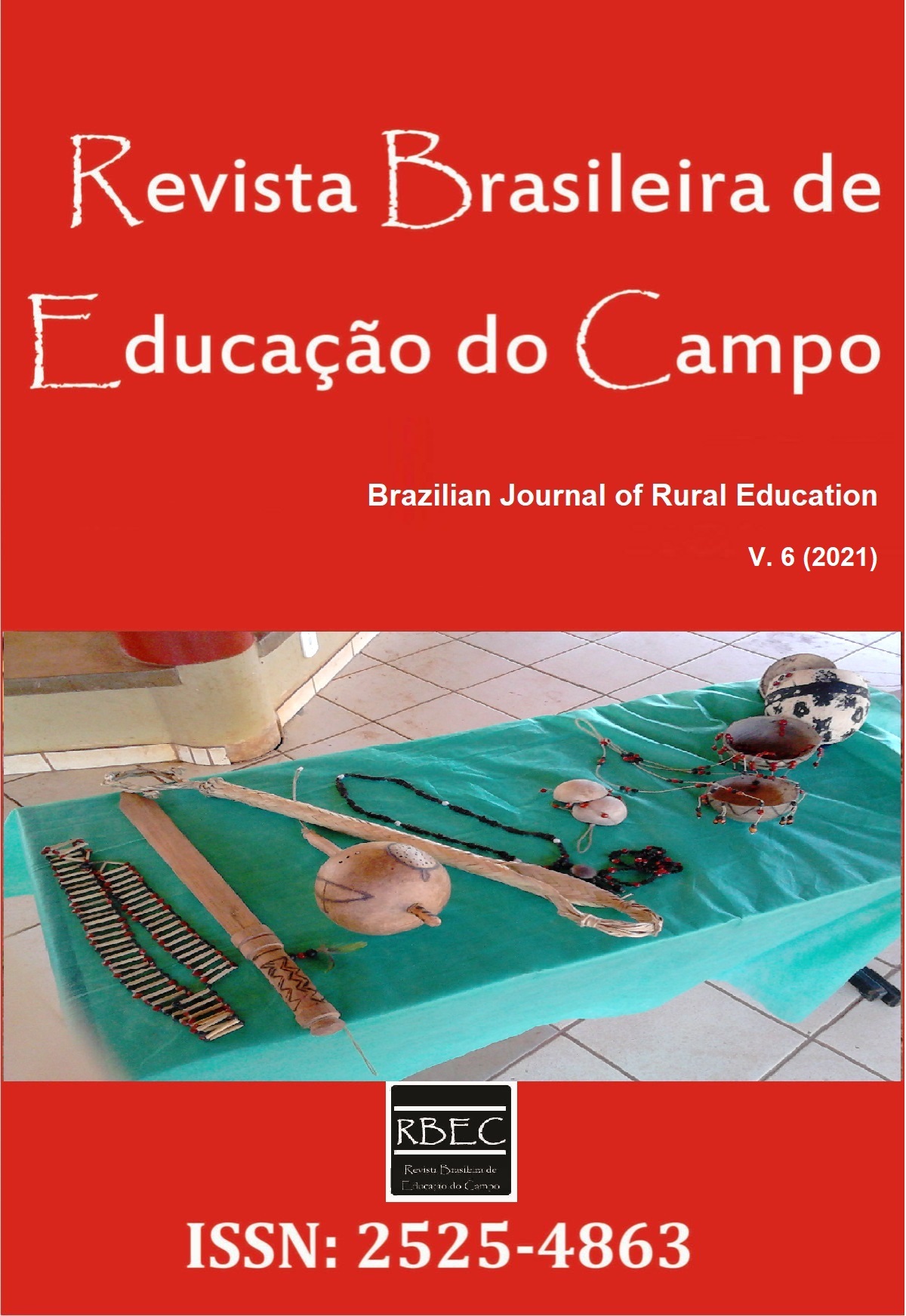Rural young in High School: schooling experiences and youth expectations
DOI:
https://doi.org/10.20873/uft.rbec.e11490Abstract
ABSTRACT. This article presents the results of a research that sought to analyze the schooling process of young students in their first year of Higher Education from a rural school. We try to highlight the most significant facts of the school experiences brought by students and their expectations for the future with the aim of understanding the meaning they attribute to the experiences in a school located in countryside. The research procedures were establishment observations, individual semi-structured interviews, questionnaire and documentary study The survey data suggest that young people are able to express their opinions about classes, content and school. From the research data, we can say that young people are able to express their opinions about classes, content and school. From the interviews, we realized that the meanings attributed to the school in the schooling process are positive, since young people feel confident in this institution.
Downloads
Literaturhinweise
Breitenbach, R., & Corazza, G. (2019). Formação profissional e a relação com a sucessão geracional entre jovens rurais, Brasil. Revista Latinoamericana de Ciencias Sociales, Niñez y Juventud, 7(2), 262-296. https://dx.doi.org/10.11600/1692715x.17212.
Carneiro, M. J. (1998). O ideal urbano: campo e cidade no imaginário de jovens rurais. In Silva, F. C. T. et al. (Orgs.). Mundo rural e política (pp. s./p.). Rio de Janeiro: Pronex/Ed. Campus.
Castro, E. G. (2005). Entre ficar e sair: uma etnografia da construção social da categoria jovem rural (Tese de Doutorado). Universidade Federal do Rio de Janeiro, Rio de Janeiro.
Dayrell, J. (2007). A escola faz juventudes? Reflexões em torno da socialização juvenil. Revista Educação e Sociedade, 28(100), 105-1128. https://doi.org/10.1590/S0101-73302007000300022
Ferrão, J. (2000). Relações entre mundo rural e mundo urbano: evolução histórica, situação actual e pistas para o futuro. Eure, 27(78), 123-130. https://doi.org/10.4067/S0250-71612000007800006
Gil, A. C. (2008). Métodos e técnicas de pesquisa social (6a ed.). São Paulo: Atlas.
Krawczyk, N (2013). Jovens do ensino médio: projetos de vida e perspectiva de futuro. In Dayrell, J., Carrano, P., & Maia, C. L. (Orgs.). Juventude e ensino médio (pp. 78-100). Belo Horizonte: Editora UFMG.
Kuenzer, A. Z. (Org.) (2007). Ensino Médio: construindo uma proposta para os que vivem do trabalho (5a ed.). São Paulo: Cortez.
Leão G., Dayrell J., & Reis, J.B. (2011). Juventude, projetos de vida e ensino médio. Revista Educação e Sociedade, 32(117), 1067-1084 https://doi.org/10.1590/S0101-73302011000400010
Ministério da Educação (2013). Formação de professores do ensino médio, etapa I – caderno II: o jovem como sujeito do ensino médio. In Carrano, P., & Dayrell, J. (Orgs.). ____ (pp. s./p.). Curitiba: UFPR/Setor de Educação.
Matos, A. G. (2002). Desenvolvimento, autonomia e academia. In: Lima, D. M., & Wilkinson, J. (Org.). Inovação nas tradições da agricultura familiar (pp. 02-14). Brasília: CNPq/Paralelo 15.
Santos, G. D. (2017). Percepção dos jovens frente ao êxodo rural e as dinâmicas de mudança do campo (Trabalho de Conclusão de Curso). Universidade Federal do Rio Grande do Sul, Rio Grande do Sul.
Silva, V. (2015). Jovens de um rural brasileiro: Socialização, Educação e Assistência. Cadernos Cedes, 22(57), 97-115. https://doi.org/10.1590/S0101-32622002000200007
Silva, S. R., & Pereira, C. R. (2015). O consumo de smartphone entre jovens de camadas populares. Revista do Programa Avançado de Cultura Contemporânea, 1-6.
Veröffentlicht
Zitationsvorschlag
Ausgabe
Rubrik
Lizenz
Creative Commons Attribution License
Creative Commons Attribution License
Proposal for Copyright Notice Creative Commons
1. Policy Proposal to Open Access Journals
Authors who publish with this journal agree to the following terms:
A. Authors retain copyright and grant the journal right of first publication with the work simultaneously licensed under the Creative Commons Attribution License that allows sharing the work with recognition of its initial publication in this journal.
B. Authors are able to take on additional contracts separately, non-exclusive distribution of the version of the paper published in this journal (ex .: publish in institutional repository or as a book), with an acknowledgment of its initial publication in this journal.
C. Authors are permitted and encouraged to post their work online (eg .: in institutional repositories or on their website) at any point before or during the editorial process, as it can lead to productive exchanges, as well as increase the impact and the citation of published work (See the Effect of Open Access).














